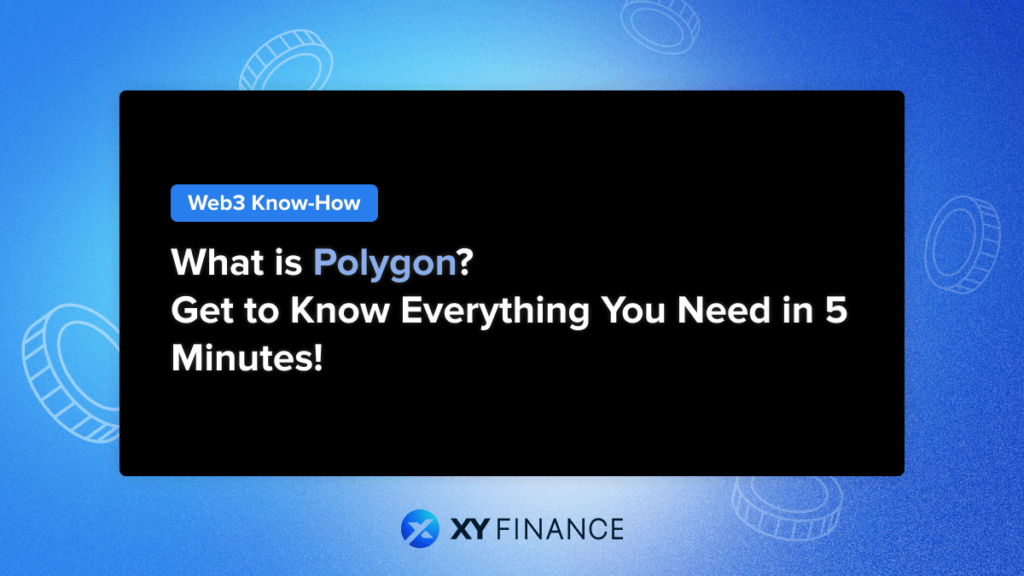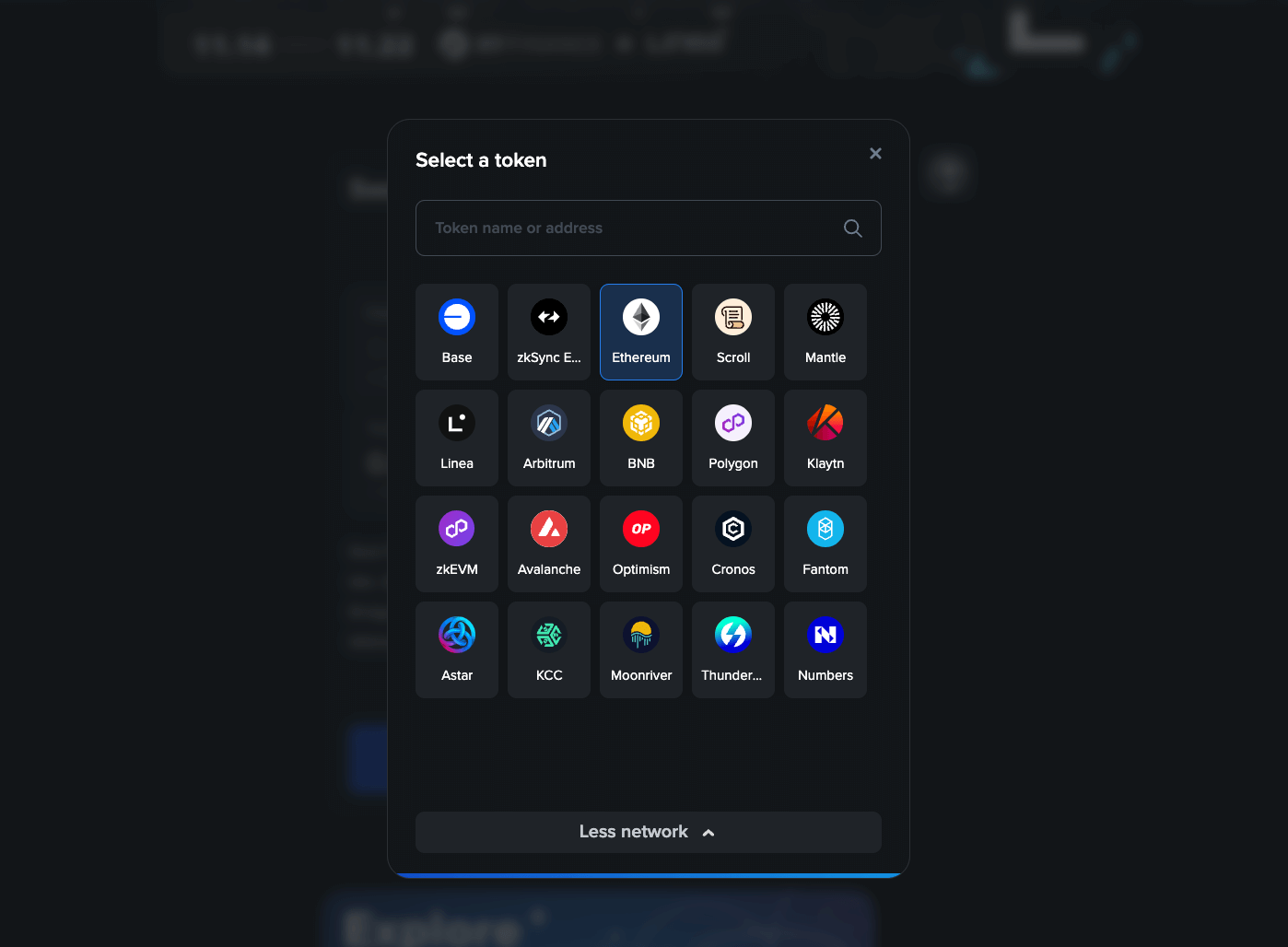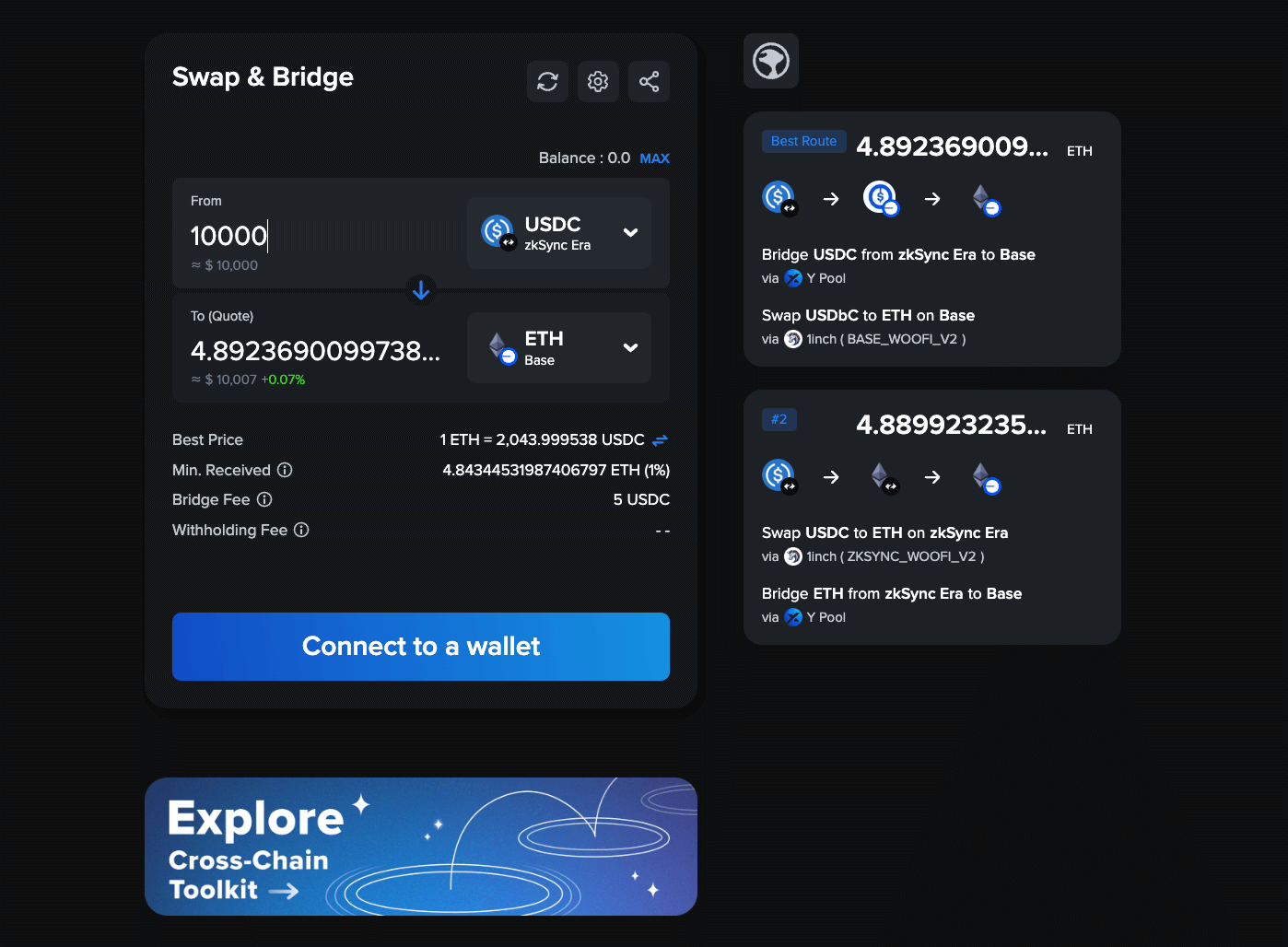
Thinking of exploring the Polygon network? Read on below for a comprehensive guide for all you need to know!
What is Polygon?
Whether you’re a Web3 noob or an OG, you’ve surely heard about the Polygon blockchain. Formerly known as MATIC, Polygon is a stack of protocols designed to address Ethereum’s scalability issues by processing transactions separately on a compatible side chain. By doing this, it raises transaction speed and lowers transaction costs.
Since its inception, Polygon has processed over 2 billion transactions, aiming to make Ethereum transactions faster and more affordable. Polygon can potentially process up to 65,000 transactions per second, whereas Ethereum can only handle an estimated 17 transactions per second. What a world of difference! It’s easy to see why it’s more appealing to crypto users. In addition to a high throughput rate, Polygon also executes these transactions at a fraction of the cost.
What is $MATIC?
$MATIC is the native token of the Polygon network, enabling users to interact with the thousands of dApps within the Polygon ecosystem. Additionally, it is used to secure the network through staking.
When users conduct transactions or use applications built on Polygon PoS, they pay a small fee in $MATIC. This fee incentivizes validators to process and verify transactions. Moreover, Polygon uses staked $MATIC to reach network consensus. Users can secure Polygon PoS and earn rewards by staking, while validators are disincentivized from engaging in any malicious behavior.
Polygon vs. Polygon zkEVM
Since Polygon’s launch, zero-knowledge (ZK) technology has emerged as a possible solution to scalability. However, existing Ethereum smart contracts couldn’t be deployed directly onto zk-rollups without modifications. Thus, Polygon zkEVM was developed.
Polygon zkEVM is a Layer 2 network of the Ethereum Virtual Machine (EVM) that uses a zero-knowledge (zk) rollup scaling solution. It integrates zk-proofs (ZKPs) into the EVM environment on Polygon. With zk-rollups, these ZKPs allow a larger volume of transactions to be processed off-chain, bundled together, and then verified in a single batch on-chain. This significantly increases the throughput rate and keeps gas fees low since transactions are processed off-chain.
Here are the benefits of Polygon zkEVM:
- Lower Gas Fees: More transactions being processed off-chain means less data being stored on-chain, leading to reduced transaction costs—with an average gas fee of 0.000550 ETH per transaction!
- Higher Throughput Rate: Since transactions are processed and verified in batches, a higher volume can be processed simultaneously, enabling dApps to operate with less congestion.
- EVM Compatibility: Developers and users already familiar with Ethereum and its environment can easily and quickly transition to Polygon zkEVM, with no learning curve to overcome.
- Better Security: By integrating ZKPs, Polygon zkEVM maintains the integrity and security of transactions even with off-chain processes.
Polygon’s Pros and Cons
Let’s take a deeper dive into some of the advantages and disadvantages of Polygon.
Pros
- Quick Transaction Processing Speeds: With a proof-of-stake (PoS) consensus mechanism that completes transaction confirmation in a single block, the average processing time is reported to be just 2.1 seconds.
- Low Transaction Costs: With an average fee of about $0.01 per transaction, users can enjoy significant savings compared to transacting on Ethereum, which has an average gas fee of around $15 (but can quickly go over $50 or $80).
- Interoperability: Designed to be interoperable with Ethereum, Polygon can scale without limits.
Cons
- Non-autonomy: Polygon is a Layer 2 solution working on top of the Ethereum platform—if Ethereum experiences disruptions, Polygon loses functionality as well.
- Limited MATIC Use Cases: The native token is used to govern and secure Polygon, but aside from this, MATIC is not used for everyday purchases.
Polygon’s Future Outlook
Polygon has significantly addressed Ethereum’s scalability issues with its Layer 2 solutions, notably through the development of Polygon zkEVM. This enhancement offers lower gas fees, higher throughput rates, and better security, making it an attractive option for developers and users. As more projects and users migrate to Polygon, its interoperability and cost-effectiveness are expected to drive further adoption. With ongoing infrastructure improvements and a growing dApp ecosystem, Polygon is well-positioned to play a pivotal role in the future of decentralized finance (DeFi) and blockchain technology.
Polygon vs. Other L1 Blockchains
When comparing Polygon to other Layer 1 blockchains, several key metrics highlight its performance and adoption. These metrics include Total Value Locked (TVL), the number of protocols, active addresses, and the Mcap/TVL ratio. The table below provides a data-driven comparison of these blockchains:
| Blockchain | TVL | Protocol Numbers | Active Address | Mcap/TVL |
| Ethereum | 62.3B | 1084 | 0.4M | 6.8 |
| BNB Chain | 5.3B | 760 | 1M | 17.7 |
| Solana | 4.4B | 145 | 1.2M | 15.8 |
| Avalanche | 0.8B | 385 | 0.04M | 15.5 |
| Tron | 8.4B | 32 | 2.2M | 1.2 |
| Polygon | 0.9B | 556 | 1.2M | 6.4 |
- Total Value Locked (TVL): Ethereum leads with the highest TVL at $62.3 billion, reflecting its dominance in the DeFi space. Polygon, with $0.9 billion in TVL, shows substantial value among Layer 2 solutions.
- Protocol Numbers: Ethereum and BNB Chain host the most protocols, with 1084 and 760 respectively, indicating a wide array of applications. Polygon supports 556 protocols, highlighting its growing ecosystem.
- Active Addresses: Tron has the highest number of active addresses at 2.2 million, followed by Solana and Polygon, both with 1.2 million active addresses, showcasing significant user engagement.
- Mcap/TVL Ratio: Tron has the lowest Mcap/TVL ratio at 1.2, suggesting a higher valuation relative to its locked value. Polygon’s ratio of 6.4 is competitive, reflecting a balanced valuation.
These metrics highlight Polygon’s strengths in scalability, user adoption, and ecosystem development compared to other leading blockchains. Its competitive active address count and protocol numbers make it an attractive option for developers and users seeking a cost-effective and efficient blockchain solution.
Ecosystem on Polygon Chain
No matter what piques your interest—be it DeFi, NFTs, GameFi, or more—there’s surely a dApp in the Polygon ecosystem that will suit your fancy.
Here are a few highlights from the ecosystem.
DEX – Uniswap
Uniswap is a DEX allowing users to trade cryptocurrencies directly from their wallets without the need for an intermediary. It utilizes an AMM model, where liquidity is provided by users who earn fees on trades. With its user-friendly interface and innovative liquidity pools, Uniswap has become one of the most popular DEXs in the DeFi space, enabling seamless and efficient token swaps.
Lending – AAVE
Aave is a DeFi protocol that allows users to lend and borrow cryptocurrencies without intermediaries. Aave uses smart contracts to enable secure and transparent transactions. Users can earn interest on deposits and borrow assets by providing collateral. Known for its innovative features like flash loans and rate switching, Aave has become a leading platform in the DeFi space, promoting liquidity and financial inclusivity.
Yield Aggregator – Yearn Finance
Yearn Finance is a DeFi platform that focuses on optimizing yield farming strategies for users. It automates the process of investing in various DeFi protocols to generate the highest possible returns. Users can deposit their assets into Yearn’s “vaults,” which employ complex strategies to maximize yield. Known for its user-friendly interface and effective yield optimization, Yearn Finance has become a popular choice for investors seeking to maximize their returns in the DeFi ecosystem.
RWA – Ondo Finance
Ondo Finance is a DeFi platform that offers structured financial products designed to provide predictable returns and manage risk. By creating innovative yield strategies and liquidity solutions, Ondo Finance allows users to access diversified investment opportunities in the DeFi space. With a focus on transparency and efficiency, Ondo Finance aims to bridge the gap between traditional finance and decentralized finance, making sophisticated financial tools accessible to a broader audience.
Tool – Polygon Name Service
Polygon Name Service (PNS) is a decentralized naming system built on the Polygon blockchain. It allows users to register and manage human-readable names for their wallet addresses, making it easier to send and receive cryptocurrencies.
Prediction Market – Polymarket
Polymarket is the “world’s largest prediction market” where users can bet on highly-debated topics ranging from crypto to current events and everything in between.
To discover more about the rapidly growing ecosystem, make your way to the Polygon ecosystem page and start exploring today!
How to bridge to Polygon?
After you have a basic understanding of Polygon and its ecosystem, it’s time to bridge your assets and explore freely!
Bridging to Polygon is very simple! We recommend XY Finance because it offers ultimate routing across multi-chains, making borderless and seamless swapping just a click away.
(Fully understand XY Finance: What is XY Finance? The cheapest cross-chain bridge aggregator that operates on 18 EVM chains)
Don’t waste your time! You can now bridge tokens to Polygon with this simple guide:
- Visit XY Finance and connect your MetaMask Wallet.
- Select the network you want to transfer tokens from (Ethereum, Polygon, Arbitrum, Avalanche, Optimism + 15 others).
- Select the token you want to bridge from your network to Base and input the amount.
- Review and confirm the transaction. Your tokens will arrive in under 5 minutes.
And now, everything is ready! Click the button and enjoy your surfing time in the Polygon universe!
About XY Finance
XY Finance is a cross-chain interoperability protocol aggregating DEXs & Bridges. With the ultimate routing across multi-chains, borderless and seamless swapping is just one click away.
XY Finance Official Channels
XY Finance | Discord | Twitter | Telegram | Documents | Partnership Form


